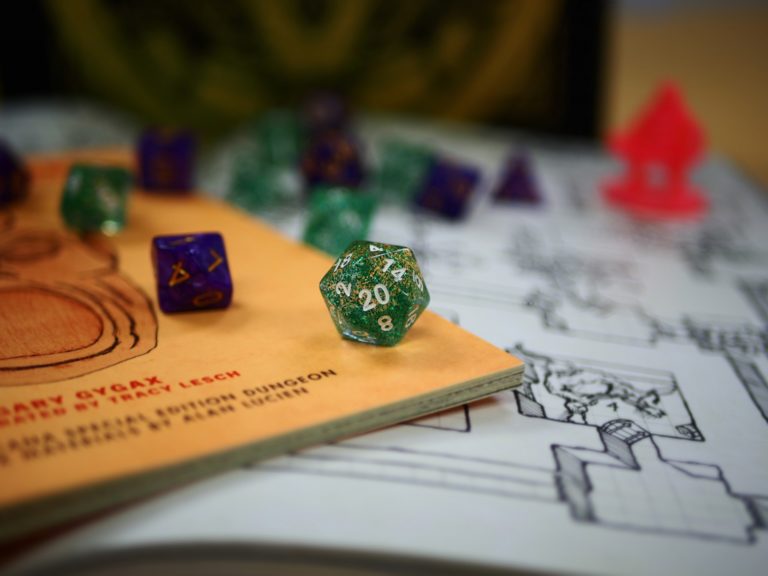Ranking the Best Supernatural Gifts in Theros | Supernatural Gifts 5E
Supernatural Gifts are not new to the game; The Player’s Handbook details some things you can do to gain Supernatural gifts. However, The Mythic Odysseys of Theros asks that players begin with one gift of your choice, in addition to potentially gaining additional gifts as time goes on. That’s huge! Let’s talk about why, and rate each gift by their usefulness in our Theros Supernatural Gifts 5E guide.

Table of Contents
Supernatural Gifts 5E Guide
For those who don’t know, Supernatural Gifts are given to players as a group of additional features. These stack on top of your class features and can be used separately.
Traditionally, they would be granted after a player commits a deed that a God decides is worthy of being rewarded. In Theros, these gifts can be given by powerful deities, as a result from birth, or due to the hero being created by supernatural events.
Ranking the Supernatural Gifts in Theros
Below are our opinions on how useful each Supernatural Gift is to the average character. These are not a set-in-stone list; for example, if you are a Warforged character, the Anvilwrought gift will be useless.
In addition, the variant Heroic Feat rule allows for players to be given one feat of your choice at level 1 instead. While these are all worthwhile choices at level 1, we will be focusing on the Supernatural Gifts, rather than a level 1 bonus feat.
9. Inscrutable
You’re blessed like a Sphynx. Your example reasons for being Inscrutable ranges from intense training, to godly blessing, to just a quirk of how you speak. In addition, you gain two benefits.
- Psychic Shield. Psychic resistance.
- Sphinx’s Shroud. Immunity to emotion and mind reading. Insight checks to guess your intentions or sincerity have disadvantage.
These are incredibly niche. Psychic damage isn’t necessarily uncommon, but the fact that you only get Psychic resistance from that ability is rough. Sphinx’s shroud is even more rarely useful, though the Insight check debuff might be good for a Deception-based character.
In either case, this is a rather small buff compared to your other options.
8. Lifelong Companion
You’re the best friend of all… But usually, you focus on one ally. Example companions might be the lover of another member of the party, a parent of them, or you might revere them as a champion of a god. You must ask the player for consent, if you choose them as your companion. You also gain 2 benefits.
- Boon Aura. 5 foot aura that gives advantage against Frighten and Charm, if you’re conscious.
- Companion’s Protection. Reaction that allows you to take a hit from someone within 5 ft of you once per day.
These buffs are not amazing. Frightened and Charmed are two really potent debuffs, so having advantage against them is really nice – especially when Satyrs might be your enemies! However, in a lot of fights, this might not come up, and you only benefit someone right next to you. Companion’s Protection is fantastic! It can save someone’s life… Once per day. Consider Oath of Redemption if you want a slightly more effective version of this ability.
7. Anvilwrought
An Anvilwrought is a being forged by Purphoros. You gain a few things;
- Constructed Resilience. You gain advantage on saves against the poisoned condition, and resistance to poison. You don’t need to eat, drink, sleep, or breath. You’re immune to disease. You’re immune to magical sleep.
- Sentry’s Rest. During a long rest, you spend 6 hours in an inactive, motionless state. You look unconscious, but you can actually see and hear as normal.
In addition, you have a table of Characteristics to choose from. These simply act as a list of options to help define your existence; ranging from who you consider a parent, to why Purphoros created you.
Mechanically, these are all great buffs. Poison is a fairly common damage type, especially in Theros, so you’ll enjoy that resistance. Negating disease and basic human functions is good, but a little too situational to be powerful. You’ll be the first one swimming, though!
Sentry’s Rest is fantastic, allowing your party to avoid that annoying “Night Shift” rotation that some GMs like to hone in on. It does little to stop things if you don’t have good perception… And you might still want magical traps, like Alarm, to stop invisible enemies.
If you want this ability, the Warforged race from Eberron: Rising from the Last War, might be interesting for you. If your GM allows you to use them, then this might become completely useless. Otherwise… The benefits are a bit too niche for a Supernatural Gift.
6. Unscarred
Your durability rivals the great hero Haktos. You have an origin table for examples, ranging from swallowing a magic stone to being rescued from the Underworld. You also gain a single benefit;
- Unscarred Resilience. Reaction. Roll d12 and add your Constitution. You lower damage by that much. Refreshes on any rest.
This single ability is quite potent… Given you have decent Constitution. The d12 is just so varied in it’s results; you could reduce the damage by 12 and negate the attack completely… Or by 1, and have it hit basically just as hard. With enough Constitution, though, this can “raise your health” by 4-15, which is a very worthwhile endeavor. If you plan on being a Fighter or Barbarian, you might find this to be useful for soaking hits early on, and then staying alive later. That goes for any build that gets at least +1-+2 Constitution.
It’s a simple ability, but it’s extremely static and useful in all situations, as long as you roll average.
5. Heroic Destiny
You’re destined for greatness, and it’ll be hard to put you down. You may choose your destiny (examples ranging from becoming a skilled craftsman to becoming a god). In addition, you gain two benefits;
- Defy Death. Advantage on death saves.
- Hard to Kill. You may drop to 1 health instead of 0, if an attack wouldn’t outright kill you. This refreshes on long rests.
Death advantage saves are nice, but if you’re making death saves, then that means someone hasn’t already picked you up with Healing Word. That’s not great, since you’re already wasting turns being unconscious and not dealing with threats. You don’t want to rely on this, but having the best possible chance to survive when dying is great by itself.
Hard to Kill is much better. This could theoretically heal you for a lot, but more importantly, it keeps you in the fight. You may want to save this for an important fight so you can deal as much damage as possible without your healers using their resources.
4. Nyxborn
You come from the god’s realm… And you might be mortal. Two tables for this one; you have an origin (perhaps you were crafted, rescued from the Underworld, the muse of a song, etc) and a quirk (your laughter causes birds to sing, your hair moves like it’s always in a breeze, etc). You also gain two buffs.
- Cloak of Stars. As an action, attack rolls have disadvantage against you for 1 minute, until you take it off, or die. Refreshes daily.
- Nyxborn Resistance. Resistance to necrotic and radiant damage.
Great buffs! Cloak of Stars is essential if you plan on frontlining; attack rolls come at you fast and hard in Theros! 1 minute is 10 rounds, so that’s a lot of miss chances. Nyxborn Resistance does what Inscrutable doesn’t; give you access to resistance against two somewhat rare damage types. Perfect! Arguably, necrotic and radiant damage are both more common than psychic.
The durability of the disadvantage buff, and the two solid resistances, elevate this quite a bit. But, it’s not perfect; enemies can attack allies instead while Cloak of Stars is active, and you could end up fighting enemies that never use necrotic nor radiant.
3. Pious
You’re deeply connected to a god. You have a quirk because of this; ranging from calling others by your god’s name, or perhaps not wanting to stay in towns unless there’s a temple to your god. Or maybe your god’s your parent. You also gain some buffs.
- Pious Protection. You can reroll a failed save once per day.
- Religious Study. Advantage on Intelligence (Religion) pertaining to your God.
- Starting Piety. Begin with 3 piety with your god.
This bonus can be, realistically, #9 or #1 depending entirely on where your starting Piety goes. Pious Protection is great, keeping you alive. Religious Study is so specific that it becomes kinda worthless; you don’t even get guaranteed successes on your own zealous worship! What’s up with that?
Starting Piety is crucial, then. If your Piety 3+ gift is good, and you really want to make your way to the 50+ bonus, then this isn’t a bad choice. This’ll require some forethought, but it could be by far the best option for you… Or just a daily rerolled save. Choose carefully, or this becomes significantly worse.
2. Iconoclast
You refuse to worship the gods. You may reject the gods for numerous reasons (examples include blaming them for your family’s death, or just not liking the gods’ personality.) You gain a few benefits;
- Enlightened Protection. You can cast Protection from Evil and Good once per long rest for no material components.
- Reject the Gods. A scaling buff.
- 5th: Iconoclast Hero. Dispel Magic, once per day.
- 11th: Iconoclast Paragon. Dispel Evil and Good, once per day. Dispel Magic (from Hero) is now a 4th level spell.
- 17th: Iconoclast Archetype. Antimagic Field, once per day. Dispel Magic (from Hero) is now a 5th level spell.
Fantastic anti-magic abilities! This doesn’t do too much until level 5, but Protection from Evil and Good is a great buff for a world full of Fey monsters. Dispel Magic, Dispel Evil and Good, and Antimagic Field are all really strong spells for a character to have ready – Dispel Magic alone will save you from powerful enemies or the Fly spell.
You do lose the Piety system buffs, but these are just too useful in all situations.
1. Oracle
Oracles see the future by connecting to the gods… But it comes at a price. Your Curse can range from knowing how you are to die, to having a Nyxborn abomination watch you at all times; consult the table for guidance! You also gain a lot of buffs!
- Ears of the Oracle. Learn Celestial. Gods can deliver messages through you, using your voice or the gods’ (Your choice).
- Oracle’s Insight. You can add d10 to an ability check; after the roll, before the DM confirms it. Refreshers on short rests.
- Oracle’s Piety. Instead of gaining normal godly benefits, you gain specific spells from Piety.
- Piety 3: Augur. Augury, once per day.
- Piety 10: Seer. Divination, once per day.
- Piety 25: Sybl. Commune, once per day. You also can’t be surprised while conscious.
- Piety 50: Divine Oracle. Increase Intelligence or Wisdom by 2, as well as the max by 2.
There’s so much information and utility here; so much information that your DM can make you the centerpiece of the campaign if they want. Divine Oracle is the sole reason that this is #1; at 50 piety, you can increase your DCs by something beyond what’s possible for any other gift.
There’s not much else to say. This is just too good to be true; it’s almost essential for any Cleric, Druid, or Wizard to at least consider this gift… And any other class will still benefit from this gift up to 25 Piety.
Wrapping Up
That concludes our Supernatural Gifts 5E Guide for Theros. Once again; your class and race shift the position on this list hugely. If you’re an Aasimar, you shouldn’t take Nyxborn (even if it does make a lot of sense!) Lifelong Companion might be a lot better for a Fighter if they have another Frontliner and no flanking rules. Oracle’s probably not going to mean much for a class that doesn’t care about Intelligence or Wisdom.
However, in most cases, the scaling of Iconoclast and Oracle just push them above the standard abilities of the other gift options. If your GM isn’t giving you much information about your campaign setting, and you’re a human that’s considering going for a casting class, this list holds pretty firm.






